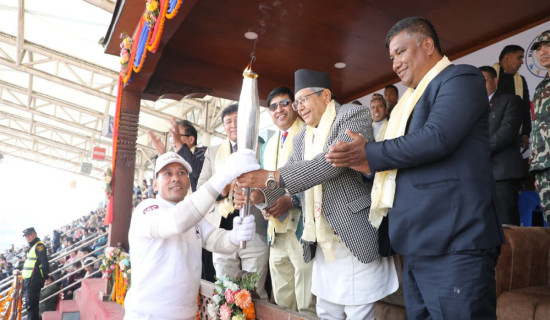- Sunday, 28 December 2025
Decluttering Brings Joy
Nilima Adhikari
A few years back when I was tidying up my cluttered room, I started pondering whether all these possessions were necessary or they just messed up on my room and occupied my space, physically and mentally. ‘Shop till you drop’ is the motto of consumerism. We go on buying spree and hoarding goods to an extent that we tend to identify our worth and status with them. But this will put us on a gruelling treadmill of 7-day works in a week, making a hole in my savings and depriving us of both time and resources to do things that we really delight in.
Do we really need all these stuffs we buy? Are they indispensible for our living? Many things in our drawers and cupboards have not been used for years, and they don’t add any substantial value to our life. We won’t even realise that they are gone if we throw away half of them. This decluttering leads to increased focus and productivity, and substantial reduction of our stress level. The decluttering does not just enable us to get rid of unnecessary things but also create a space that gives a sense of value, peace and satisfaction. Therefore, the process of decluttering is both liberating and refreshing.
Gradually, I opted for minimalism, identifying what is essential and what not. The courage to eliminate the rest gave me time, energy, resource and capacity to do things that bring real happiness to my life. At times, we become so overwhelmed by physical, mental and digital clutter that leads to anxiety, and loss of sense for the appreciation for things that are beautiful and heart-warming. Everyday’s tasks like doing yoga, going for a walk, cooking, reading books and gardening amuse us so much but we have forgot relishing them.
Once I come out of trap of reckless consumerism, I will spend more time on the things of my passion, not the material ones for happiness. With less unnecessary stuffs and savings, I can make room for more creative fun. Rather than splashy purchase, I tend to enrich my life with experiences like learning new skill, going on a trip, enjoying nature or spending time with loved ones. As a result, I seek happiness in travelling, reading and ultimately caring for my soul. The notion that material possessions and the external world are closely tied to happiness is culturally rooted, and many people spend years unlearning or revaluating their life hitherto. I also used to believe material world is almost synonymous with happiness, and it took years to unlearn this.
Likewise, de-cluttering digital space has led to improved productivity and has reduced my stress significantly. Turning off nonessential notifications, mindful use of social media and streamlining social media accounts has significantly reduced distractions. Minimalism has promoted intentional living by keeping things that adds value to my life and discarding things that distract, improving my overall well-being. The idea of minimalism nudges me to go for quality over quantity while buying things, which sound an investment, not rampant spending. I think this can be a smart move in enriching life and attaining spiritual bliss.

















